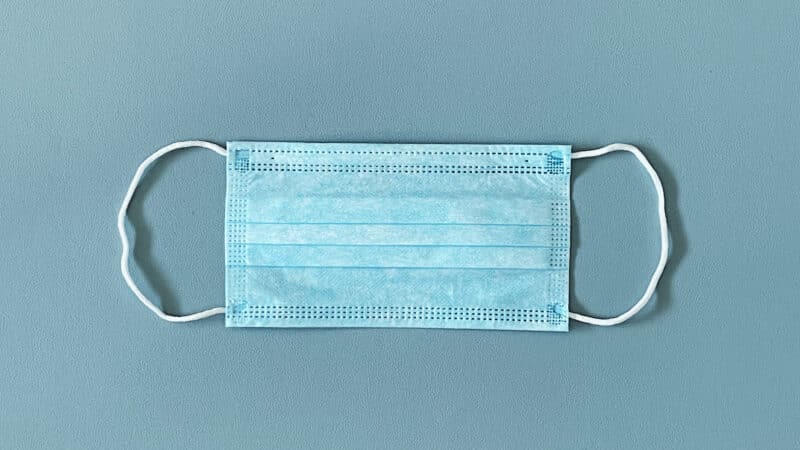Health department advises masks on as COVID climbs again
It’s time for Alabamians who do not want to catch COVID to put their masks back on.
That was the advice from the Alabama Department of Public Health this week as cases continued to increase across the state.
After the state’s positivity rate dropped to single digits in the spring and hospitals cleared out their overflow patients, people began to think the pandemic was over.
It is not.
Hospitalizations have been rising in recent weeks, and 677 people diagnosed with COVID were in Alabama hospitals Friday, according to the Alabama Department of Public Health’s COVID dashboard.
That’s the highest number since February, but it’s not nearly the almost 3,000 daily average COVID patients in hospitals in January.
The state’s positivity rate, which shows the portion of people who were officially tested for COVID-19 and returned a positive result, has risen to 30.2%.
Health officials have said the positivity rate and the case count are significantly undercounting the spread of COVID now because many people perform home tests and do not report their infection unless they get sick enough to seek a doctor’s care.
For the week ending Friday, an average of 2,854 new cases a day were officially reported statewide, according to data from Johns Hopkins University.
In all, 1.407 million cases of COVID have been reported in Alabama since the pandemic began in March 2020, and 19,872 people have died.
Jefferson County has accounted for about 14.4% percent of cases in the state and 12% of deaths.
Last week, the Alabama Department of Public Health shared a tweet that stated: “When in doubt, it’s always better to be safe than sorry. Let’s normalize masking and protect our community.”
Gov. Kay Ivey’s office quickly disagreed.
“A seafood restaurant would serve Rocky Mountain oysters before there was a mask mandate in the state of Alabama. Normalizing masking, COVID restrictions and the like are not anywhere in Governor Ivey’s vocabulary. Alabamians have common sense and can choose what is best for them,” an Ivey spokeswoman said.
However, the health department tweet didn’t suggest a mandate. It encouraged to people to make the choice to mask. “
“If you have to ask the question … just wear it and protect those around you,” the video with the tweet states.
Health officials’ advice on masking is for people who live in communities with high COVID levels to wear a mask in indoor public spaces. For those in communities at medium risk from the virus, the official recommendation is to consult with their doctors about whether they need to mask. Masking is not mentioned in guidelines for people who live in communities where the threat from COVID is low. But everyone, regardless of the threat level in their community, is advised to get vaccinated and get tested if they develop symptoms. People at high-risk are advised to take additional precautions.
Most of the state’s counties are classified as having high community rates of COVID, but a few are not. Counties classified as having medium community levels are Butler, Clay, Colbert, Coosa, Elmore, Greene, Hale, Lamar, Lauderdale, Lee, Macon, Talladega, Tallapoosa, Tuscaloosa and Winston. Counties classified as having low community rates are Franklin and Pickens. All other counties are classified as having high community levels.
Gen Z is afraid of sex — and for good reason
Gen Z is in a sex recession. Not because they're less horny, but because they're more afraid.
Nigeria says it won’t accept U.S. deportees: “We have enough problems of our own”
Nigeria's government is pushing back against U.S. efforts to send them migrants and foreign prisoners, with Nigerian Foreign Minister Yusuf Tuggar quoting Public Enemy to drive home his point.
Wet Leg are back with a slick new record
The English band's sophomore album, moisturizer, is out today. Co-founder Rhian Teasdale joins World Cafe to talk about it.
Judges to weigh request to put Alabama under preclearance for a future congressional map
Black voters and civil rights organizations, who successfully challenged Alabama’s congressional map, are asking a three-judge panel to require any new congressional maps drawn by state lawmakers to go through federal review before being implemented. The Alabama attorney general and the U.S. Department of Justice oppose the request.
Sumy, a center of Ukrainian culture, lives in the crosshairs of a new Russian offensive
The northern regional capital has become a frequent target of Russian drones, missiles and guided bombs. Now, Ukraine's top general says at least 50,000 Russian troops have massed across the border.
Take a peek at Stephen Sondheim’s papers, now at the Library of Congress
The Library of Congress' new collection includes more than 5,000 items from the Broadway legend, including ideas for Sweeney Todd lyrics and notes for Glynis Johns as she sang "Send in the Clowns."







